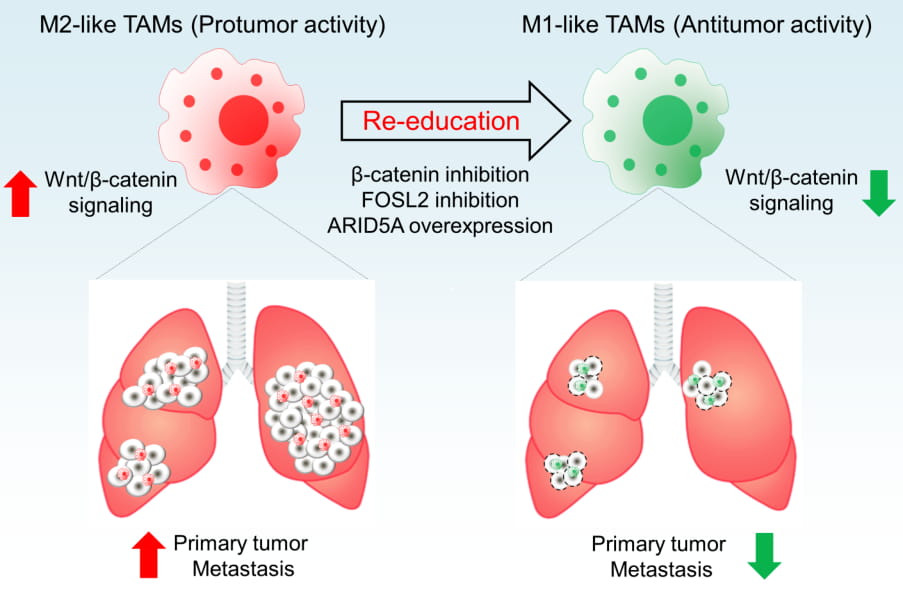June 2020
Science Advances
Reprogramming of tumor-associated macrophages by targeting beta-catenin/FOSL2/ARID5A signaling: A potential treatment of lung cancer.
Sarode P, Zheng X, Giotopoulou GA, Weigert A, Kuenne C, Gunther S, Friedrich A, Gattenlohner S, Stiewe T, Brune B, Grimminger F, Stathopoulos GT, Pullamsetti SS, Seeger W Savai R.
Abstract:
Tumor-associated macrophages (TAMs) influence lung tumor development by inducing immunosuppression. Transcriptome analysis of TAMs isolated from human lung tumor tissues revealed an up-regulation of the Wnt/β-catenin pathway. These findings were reproduced in a newly developed in vitro “trained” TAM model. Pharmacological and macrophage-specific genetic ablation of β-catenin reprogrammed M2-like TAMs to M1-like TAMs both in vitro and in various in vivo models, which was linked with the suppression of primary and metastatic lung tumor growth. An in-depth analysis of the underlying signaling events revealed that β-catenin–mediated transcriptional activation of FOS-like antigen 2 (FOSL2) and repression of the AT-rich interaction domain 5A (ARID5A) drive gene regulatory switch from M1-like TAMs to M2-like TAMs. Moreover, we found that high expressions of β-catenin and FOSL2 correlated with poor prognosis in patients with lung cancer. In conclusion, β-catenin drives a transcriptional switch in the lung tumor microenvironment, thereby promoting tumor progression and metastasis.
